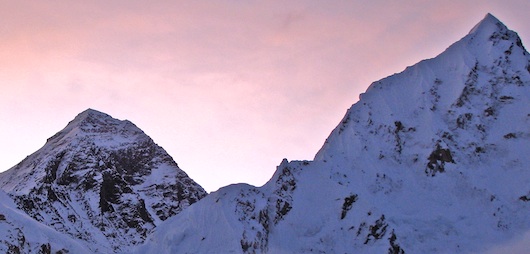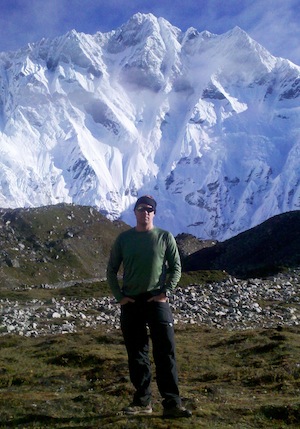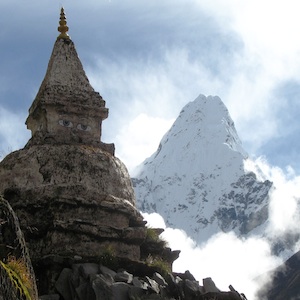In an effort to understand and mitigate the effects of global climate change on high-altitude communities and environments, Environmental Studies Associate Professor Jeff Bury, and Ph.D. Candidate Adam French, joined a group of high-altitude scientists, researchers and specialists in Sagarmatha (Everest) National Park and Kathmandu, Nepal, at the "2011 Andean-Asian Glacial Lake Expedition."
The researchers, part of the newly formed Global Glacial Lake Partnership, worked with Himalayan residents - an unprecedented alliance in Himalayan research - to discuss glacial retreat and glacial lake outburst floods (GLOFs), phenomena that have historically occurred in Nepal and other glacial areas, and cause catastrophic damage to communities and farmlands downstream. With global climate change resulting in glacial melting and sea-level rise, increasing the volume of glacial lakes, GLOFs have the capacity to cause unprecedented destruction.
The Glacial Lake Expedition was organized by The Mountain Institute and partners, funded by the U.S. Agency for International Development. According to the report on the recently published proceedings, "Andean-Asian Mountains Global Knowledge Exchange On Glaciers, Glacial Lakes, Water & Hazard Management," the results of the workshop included a report detailing "50 years of glacial lake control and management techniques," a short documentary covering the workshop expedition, and 27 papers on global climate change, and its effects on high-altitude communities.
Dr. Bury’s paper, “The Himalayan Vertical Archipelago: Climate Change, Glacial Lake Insecurity, and Institutional Capacity in the Khumba Himalaya," and Adam French's paper, "Adapting Resource Governance to Global Change: Theoretical Considerations," are included in the full proceedings, available online through The Mountain Institute's Publications web page, under Brochures and Reports.
A Google Earth overview of the expedition is available online.



